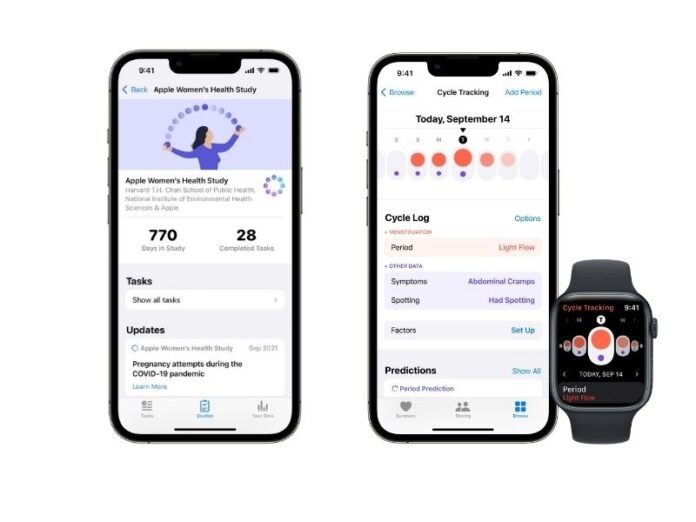The latest update from the Apple Women’s Health Study shared data about polycystic ovarian syndrome. — Picture courtesy of Harvard
KUALA LUMPUR, March 4 — Studies on women’s health have long been underfunded. This has meant women not getting the care they should have received and too many medical professionals being in the dark about women-specific medical issues.
It’s nice to know then, that the Apple Women’s Health Study that I wrote about last year is still ongoing.
This year’s findings have proven enlightening on polycystic ovarian syndrome (PCOS), a condition that is estimated to affect one in 10 women globally.
The ovaries of women with PCOS produce an abnormal amount of androgens, hormones that women usually only produce in small amounts in comparison with men.
PCOS gets its name from the many cysts that tend to form in the ovaries of women with the condition, though some women with PCOS do not have cysts, while some have ovarian cysts even without PCOS.
Now how does PCOS figure into Apple’s research? In the study led by Harvard TH Chan School of Public Health, researchers are looking at how PCOS, heart health and persistent abnormal periods are related.
In the study, 12 per cent of participants reported a PCOS diagnosis, and they were diagnosed between the ages of 14 and 35, with the median age being 22 years.
Participants with PCOS were also more likely to report a family history of PCOS — 23 per cent, compared to the five per cent of participants without PCOS.
It was also notable that 70 per cent of study participants without PCOS said their menstrual cycles become regular within four years of their first period.
This is a huge contrast with those diagnosed with PCOS, with 49 per cent saying they never had regular cycles or only achieved them with the aid of hormones.
Besides affecting menstrual cycles, PCOS may increase the risk of certain other conditions such as obesity, cardiovascular disease, diabetes, high blood pressure as well as high cholesterol.
The study found that participants with PCOS were almost four times more likely to have pre-diabetic conditions and three times more likely to have Type 2 diabetes.
High blood pressure and high cholesterol levels were also 1.7 times higher for study respondents with PCOS.
Sixty-one per cent of participants with PCOS also reported BMI measurements of more than 30kg/m2, that would put them in the obesity category.
The data also showed a link between PCOS and the heart, with arrhythmia (irregular heartbeat) being more common at 5.5 per cent of participants with PCOS than 3.7 per cent of those without.
An interesting datapoint was that of participants without PCOS but showed family history of the disease, 6.2 per cent had arrhythmia.
The findings will need more analysis, of course, to delve further into just how much a PCOS diagnosis will affect a woman’s overall health.
Still the findings could prove useful to women with PCOS or a family history of the disease to better manage their health or be aware of specific vulnerabilities like due to the condition.
You can read the full report on Harvard’s website here.



